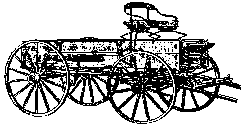In his research on the four Nez Perces who traveled to St. Louis in 1831, Jim Holsinger of Grangeville found a book with text of a speech given by one of the warriors.
The text of an 1832 speech made by a Nez Perce man in St. Louis, according to "Oregon: The Struggle for Possession," 1883, by William Barrows:
I came to you over a trail of many moons from the setting sun. You were the friend of my fathers who have all gone the long way. I came with one eye partly opened, for more light for my people, who sit in darkness. I go back with both eyes closed. How can I go back blind, to my blind people?
I made my way to you with strong arms, through many enemies and strange lands, that I might carry back much to them. I go back with both arms broken and empty. The two fathers who came with us - the braves of many winters and wars - we leave asleep here by your great water and wigwam. They were tired in many moons and their moccasins wore out.
My people sent me to get the white man's book of heaven. You took me to where you allow your women to dance, as we do not ours, and the book was not there. You took me where they worship the great spirit with candles, and the book was not there. You showed me the images of good spirits and pictures of the good land beyond, but the book was not among them to tell us the way. I am going back the long, sad trail to my people of the dark land. You make my feet heavy with the burdens of gifts, and my moccasins will grow old in carrying them, but the book is not among them.
When I tell my poor, blind, people, after one more snow, in the big council, that I did not bring the book, no word will be spoken by our old men or by our young braves. One by one they will rise up and go out in silence. My people will die in the darkness, and they will go on the long path to the other hunting grounds. No white man will go with them and no white man's book to make the way plain. I have no more words.
Some say four Nez Perce men walked from here to St. Louis in search of he Bible and the Christian religion they had heard about from trappers and explorers.
Others say they went in 1831 to acquire the advanced technology of Americans, from their rifles to their writing system.
A Grangeville man thinks he's found the answer in one of the Nez Perce warriors' words.
Jim Holsinger is a tree trimmer by trade and an amateur historian. He heard the story of Rabbit Skin Leggings, Man of the Morning, No Horns on His Head and Black Eagle in the late 1980's, and began to research their journey.
He found a 120-year-old book that contained the text of a speech made by one of the warriors - it does not mention which - before they left St. Louis.
The speech was addressed to William Clark (See: Lewis & Clark Expedition ~ The Expedition Trail Runs Through The Larson Ranch !), who helped lead the Corps of Discovery across the West almost 30 years earlier and met the Nez Perces, including Black Eagle's father.
"It requires no fancy of mine, but only memory, to sketch that audience room of furs and robes and the few hearers," wrote the book's author, William Barrows. "As to the speech, it is apparently as hard for the American language as for the American people to do an Indian justice.
The Indian's words are eloquent and sorrowful, a lament for a failed quest for the "white man's book of heaven."
The arrival of the four Nez Perces in St. Louis and their reported interest in Christianity sparked a missionary movement that would forever change their people's way of life.
Holsinger first found a copy of the speech in a book about that missionary movement that would forever change their people's way of life.
Holsinger first found a copy of the speech in a book about that missionary movement, and he traced it back to its origin in Barrow's 1883 book, "Oregon: The Struggle for Possession."
Black Eagle and Man of the Morning never left St. Louis. They died of disease, were given Christian names and buried with Catholic rites.
No Horns on His Head died of sickness on the border between North Dakota and Montana.
Only Rabbit Skins Leggings returned to his people, but he, too, died within a year - in a battle with the Blackfeet Indians along the Salmon River.
Holsinger read a Lewiston Tribune story last fall about the grave of Black Eagle and Man of the Morning Being found and descendants in the Nez Perce Tribe working to build a memorial for the site.
"I noticed all the people in the article had evidently not heard or read that speech made by one of the Indians before they left St. Louis," he says.
"It should be obvious to anyone who will read the speech with an open heart and mind that the Nez Perce Tribe at that time was desiring and thirsting for this book that they believed would lead them to heaven," Holsinger says. Not everyone is convinced, however.
"The speech - I don't know," says Crystal White, a doctoral student at Washington State University given a copy of the speech. She is director of a committee working to create a memorial for the warriors.
The speech endorses one side of a touchy subject, she says.
"Different families have different stories of why they went," says White, who lives in Lapwai. "That's a real key part to people here."
Otis Halfmoon, another memorial project member, explains the missionary movement split an already spiritual tribe into three beliefs.
"They were exposed to various religions trying to save the Indian's soul," he says.
Presbyterian Henry Spalding was one of the first missionaries to come and live with the Nez Perces. Man in the Morning's descendants are still strong Presbyterians, Halfmoon says. Other tribal members wee reached by Catholic missionaries, and Black Eagle's descendants are still strong Catholics.
Still other Nez Perces retained their traditional beliefs and religion.
Problems arose when adherents of one religion were taught the followers of others were wrong, Halfmoon says, dividing the tribal members against themselves.
"They brought a belief to our people. I don't think it was that many, many, many years ago.
"We should be one people, but we are many, many people."
Halfmoon had a Presbyterian mother and a Catholic father. He has chosen Catholicism, but not without some soul searching.
The four warriors should not be a source of conflict for the Nez Perces, he says, but a source of pride.
"Nowadays, some Nez Perces, they say we shouldn't have done that. Well, they did do that.
"We can't write the books of our past, but hopefully it will create some heroes."
White notes she has not met anyone in the course of her research that thinks the warriors were looking for something to replace their old ways.
The reasons for the skepticism about the meaning of the speech Holsinger found are not just spiritual and cultural, White says, but also historical.
White says there were other copies of the Bible near the Nez Perces at the time of the journey to St. Louis.
8ARTICLE
A Nez Perce Man In 19th Century St. Louis
Why Did Warriors Go East?
By Adam Wilson
of the Tribune



This page was last updated: February 1, 2010

Copyright © 2000 Larson Century Ranch, Inc. ~ All Rights Reserved
P. O. Box 1982
Clarkston, WA 99403
Telephone: 509-758-5445
FAX: 509-758-5701
E-Mail: Sales@LarsonCenturyRanch.com

Web Design: Design Carte
A Nez Perce Man In 19th Century St. Louis
Local historian thinks he's found the answer to why four Nez Perce men traveled to St. Louis in the early 1800s.

